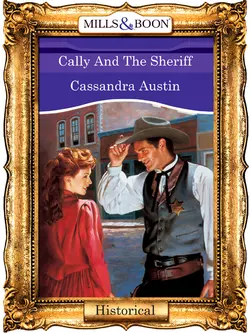Cally And The Sheriff

Cassandra Austin
Тип: электронная книга
Жанр: Современная зарубежная литература
Язык: на английском языке
Стоимость: 152.29 ₽
Статус: В продаже
Издательство: HarperCollins
Дата публикации: 16.04.2024
Отзывы: Пока нет Добавить отзыв
О книге: Andrew Haywood Was In Trouble He knew he′d promised to watch out for Cally DuBois. But he′d never expected to be mooning over a wildflower of a woman who′d just as soon shoot him as look at him! Sheriff Haywood just kept looking out for her, no matter what kind of weapon she waved at him.And Cally was beginning to think the stubborn man was blinded by that fever she saw in his eyes every time he looked at her. A fever that she seemed to be catching!